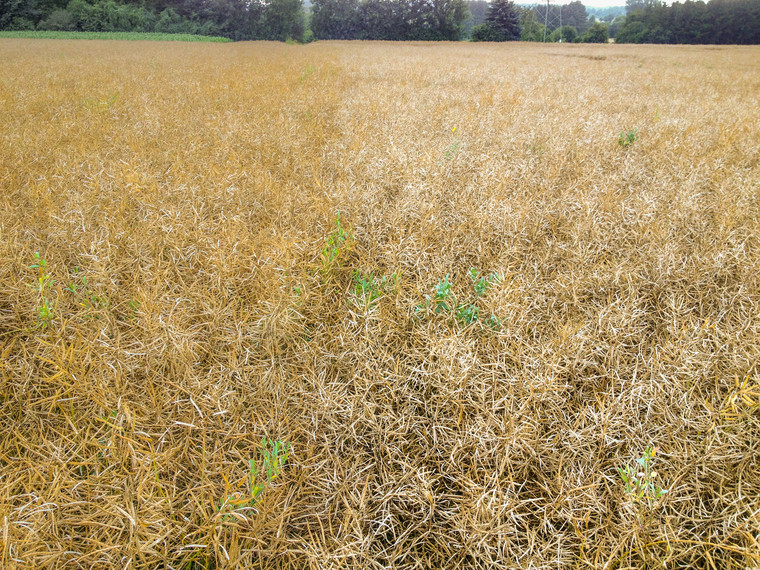Across certain areas of the country many oilseed rape crops have been devastated by the storms whilst others have been left relatively unscathed, showing very clearly the value of pod shatter resistance.
Pod shatter is a natural process for seed dispersion in oilseed rape, however on farm it can result in significant seed loss caused by heavy wind, rain, hailstones, or the combine passing through the crop.
The pod shatter (POSH) resistance gene was originally introduced into OSR together with the restorer gene from radish. But, not all hybrids carry POSH resistance as the trait was lost in the breeding process to improve the restorer.
“Those varieties that do carry a high degree of pod shatter resistance, can make a real difference to seed losses both before and at harvest, which is what we have seen in the last couple of days,” says Limagrain UK’s arable development officer Liam Wilkinson.
However, Mr Wilkinson believes that the value of pod shatter resistance is a trait that is often underestimated and not really fully understood.
“Pod shatter can be quantified as the force required to break a ripe pod – it’s not an ‘either or’ trait.”
“We precisely quantify pod shatter resistance using lab-based techniques, where the force required to shatter the pod is measured, and this clearly shows that not all POSH resistant varieties offer the same level of resistance,” he says.
“All of our hybrids contain the trait and we constantly monitor the efficacy of our pod shatter resistance against other commercial varieties so we can be confident in our claims that the variety really is pod shatter resistant, and this plays out in their high yields and leading position on the current AHDB Recommended List.”
“POSH resistance can also help to provide some flexibility in the timing of the harvest, which can be as much as 14 days extra in our tests,” he says.
“In addition, a robust POSH resistance cuts down the number of volunteers in the following crop, easing the burden of weed control.”
“It doesn’t make sense not to take advantage of the trait, why risk any seed losses if you don’t have to? It’s not as though you pay any more for a variety with good resistance over one that does not,” he says.





